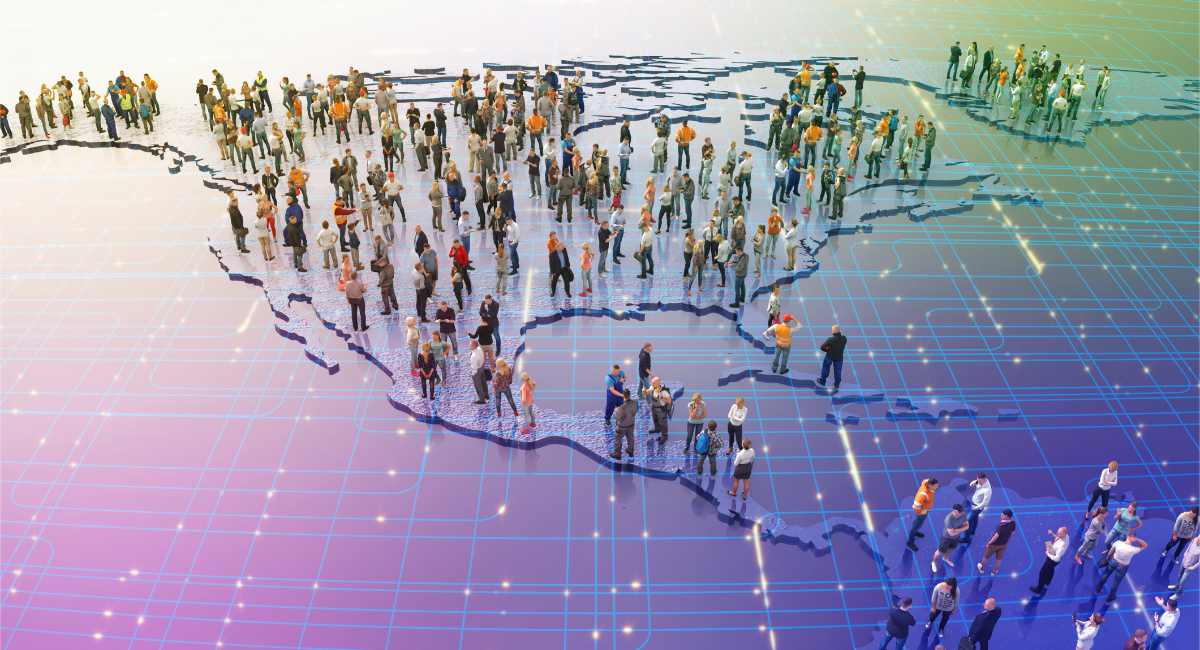In a June 1 article, The Economist highlighted a brutal possibility: the global decline in population could be the catalyst for an economic collapse by the end of the century.
No matter what environmentalists claim, said the magazine, a below-stable population rate will have a negative effect on society. But, it claims, the solution for the U.S. is neither to have more babies nor invite in more immigrants. “Before the end of this century…” said The Economist, “the number of people on the planet could shrink for the first time since the Black Death. The cause is not a surge in deaths, but a slump in births.”
The magazine notes that in 2000, the world’s fertility rate was 2.7 births per woman — above the replacement rate of 2.1, which is considered stable. In 2023, that rate is now 2.3 and is predicted to continue declining. With numerous countries facing a fertility rate below 2.1, including the U.S., a critical time has arrived.
As older generations die and there is no one born to replace them, there will be fewer young adults working to support the pensions of the retired. Rather than having three people between ages 20 and 64 for every one person over 65 (3:1), by 2050, The Economist believes that the ratio will be less than two to one. The aging society will topple over.
“The implications are higher taxes, later retirements, lower real returns for savers and, possibly, government budget crises,” it said.
But, said The Economist, “[l]ow ratios of workers to pensioners are only one problem stemming from collapsing fertility. As we explain this week, younger people have more of what psychologists call “fluid intelligence”, the ability to think creatively so as to solve problems in entirely new ways.”
Combined with the experience and intelligence of older workers, positive change can come about. Without the influx of younger workers with creative minds, there will be “enormous missed opportunity” — innovations never created, cures never found, products never developed or produced, new environmental protection plans never dreamed up.
This is not a new warning by any means. In 2008, a documentary examined the shrinking global population. “Demographic Winter: The Decline of the Human Family” explained that the expected demographic winter will be caused by a worldwide decline in birth rates. In 2017, Elon Musk began speaking out against the population decline, and in 2019, he warned that the “biggest problem” facing the world in 20 years is “population collapse.”
While some see the solution to be as simple as encouraging couples to have more children — or to have any children at all (European nations have begun offering incentives to couples to have more children), others want to increase the U.S. population through immigration. But The Economist agrees with neither plan. It believes improving educational situations among the poor of the world could be the answer, but also considers it to be too big of an endeavor. AI, it argues, could be the answer.
“Eventually AI may be able to generate ideas by itself, reducing the need for human intelligence,” it claims. “Combined with robotics, AI may also make caring for the elderly less labour-intensive. Such innovations will certainly be in high demand.
“If technology does allow humanity to overcome the baby bust, it will fit the historical pattern. Unexpected productivity advances meant that demographic time-bombs, such as the mass starvation predicted by Thomas Malthus in the 18th century, failed to detonate. Fewer babies means less human genius. But that might be a problem human genius can fix.”
But this seems an incredibly dismal vision for the future — a society with little human interaction, with robots caring for the elderly, and AI creating the innovations of the future. It’s a sci-fi plotline we’ve seen before, and it’s one that never ends well. It is easy to see how assisted suicide could become compulsory.
Changing societal norms of fewer children and larger wealth have led to steady rates of abortion in which women are expected to put their careers over children. Quite simply, The Economist knows and admits the problem is too few children being born and therefore knows that the solution is obvious — to have more children.
Replacing the human beings of tomorrow with AI will erase the uniqueness and beauty of humankind, of humanity, of God-given gifts and talents meant to change the world. AI may be able to carry out human tasks, but it can never be human. It will never be uniquely and wonderfully made in God’s image and will never truly carry out human tasks with humaneness.








